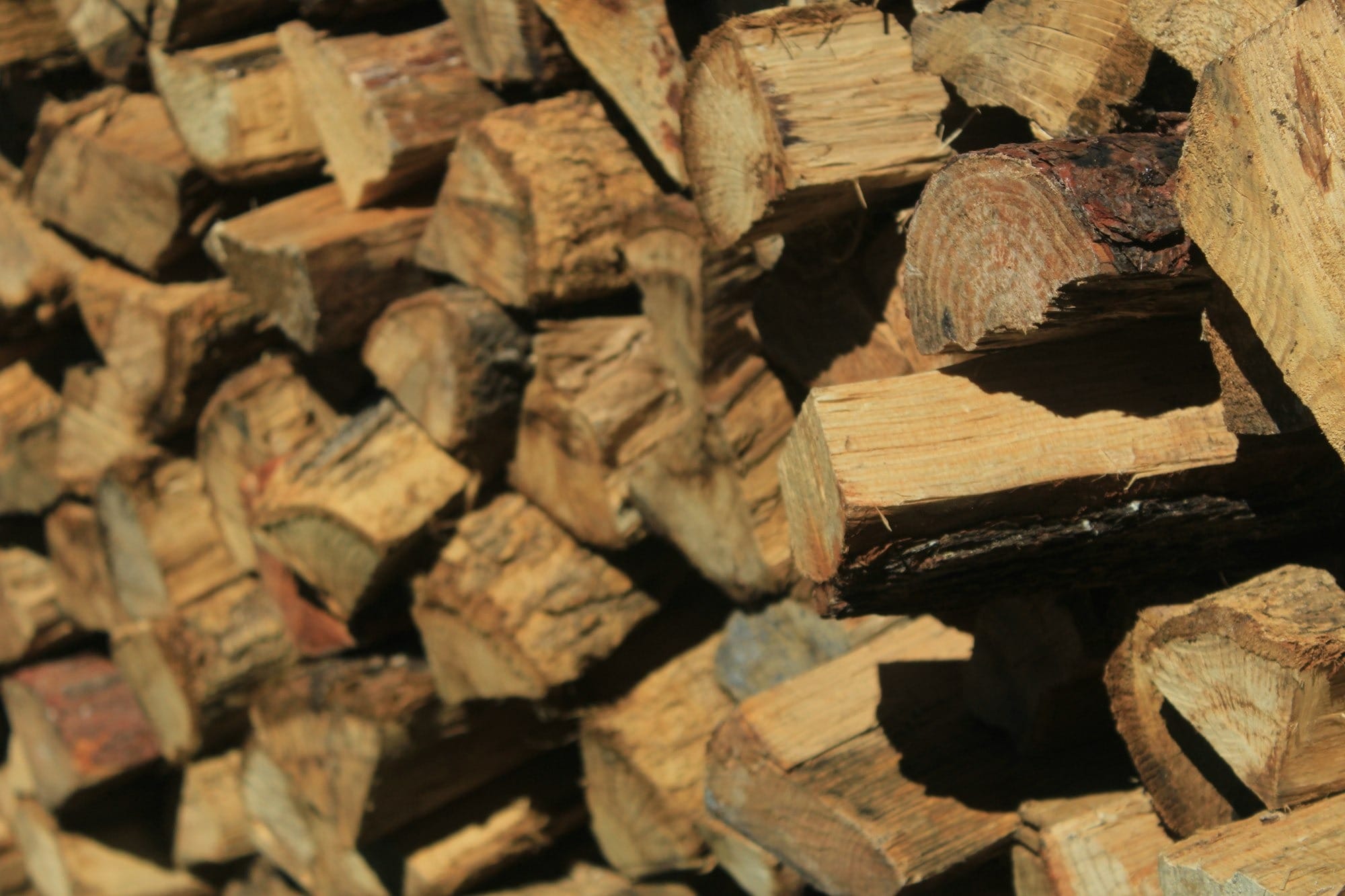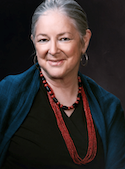The poem, Moving the Woodpile, by esteemed Chickasaw poet, novelist, and essayist Linda Hogan, reveals a perspective into the relationship we, as humans, have with the rest of creation as the narrator literally and figuratively moves a woodpile and reveals to us what is underneath.
In her personal life, Hogan has lived out a respect and care for the nonhuman world in tangible ways, such as working as a volunteer at wildlife rescue clinic where eagles, owls, and other birds of prey are rehabilitated. She considers caretaking the basic work of living on earth and "sees a direct relation between how we care for the animal-people and the plants and insects and land and water, and how we care for each other, and for ourselves."
But still, as the poem laments, there is a damage we humans can't seem to avoid causing the nonhuman world. And Moving the Woodpile calls for change, suggesting that we humans need to see creation better and thus learn to respect it. If we can never completely erase the gap between humans and nonhumans, perhaps the gap can at least be made smaller by recognizing innate value in other, nonhuman parts of the creation.

Moving the Woodpile
by Linda Hogan
Never am I careless,
yet when I lift the wood,
before I even see the wasp nest
I see spiders and ants, some preserved in pitch
and when I lift the wood
the bark falls from the log
and there are silk cocoons,
worm-carved lines worked into the
woodflesh,
the beautiful work of insects
before they were white-winged, dusted creatures
who never asked the tree, What am I, who could I be,
never did they say, Oh world I love you
yet I loosen your skin and then I fly into the night.
As I lifted the log,
there they were in the wood, not yet anything,
the paper wasp nest of the barely alive,
only pale fingers searching, without eyes.
It’s been so many years ago now
and still I have the haunting
memory and feel, standing there with the nest,
offering the wasps back their young,
but they could not approach a human holding their nest.
Maybe our sin is not enough
of us get on our knees and ever see
how everything small and nearly gone
is precious, the paper wasp nest,
made by the moment-by-moment creation of care.
Maybe our human sin is for us never to say
all these are great.
And I, the one who took it, in innocence, apart
as if being human I could not help it,
despite myself, generous and thieving
at one and the same time.
I’ve always wished
to hold the truly stolen, broken world together
but my every move is to break
by degrees, acres, even the smallest atom.
Still, from this other body continent
I offered them their young
and they could not come near the untamed woman,
only fly with desperation
and I think of this still
every evening, like a prayer,
that day holding out the nest for them, placing it down,
but never for them to approach,
and how I waited, how I watched.
© 2008 Linda Hogan, Coffee House Press.
As I read this poem, I see the "worm-carved lines" and the "pale fingers, searching." I see the narrator, standing there looking between what is in her hands and the wasps who hover, distraught nearby. I feel the grief with one who, although "never" careless, still accidentally destroys another creature's life. Although she wants to repair the damage she has done, there is a brokenness between her and the wasps that means they cannot trust her enough to approach the nest she is holding out to them. As we see in the poem, there is grief when we destroy something in innocence. But, as the poem suggests, there is often a greater wrong than this accidental harm:
"maybe our sin is not enough/of us get on our knees and ever see/how everything small and nearly gone/is precious, the paper wasp nest, made by the moment-by-moment creation of care./ Maybe our human sin is for us never to say/all these are great."
Although in some ways it is easier to be unaware of the ways we damage something "precious," this, according to Hogan, is the worse wrong, where "our sin" shows up. It is never right to refuse to see the preciousness of something merely so that we do not have to take its welfare into account. We can't in good conscience devalue another human to protect ourselves from the responsibility of treating them with respect or avoid the guilt we should experience if we treat them badly. Neither should we condone devaluing another part of creation in order to protect our own self-interest or our own sense of self-worth. Humans have a long history of convincing ourselves that something or someone unlike us is of less value, therefore leaving us free to act in ways that harm the other being.
It is true that, as humans, we will move woodpiles and sometimes that action will do unintended harm that we can't repair. But becoming aware of the beauty that happens below our normal eye level opens our eyes to the richness in the rest of creation. This can cause a deep sense of care toward the world alongside the grievous recognition of the inevitable effect we have on other parts of creation.
In my front yard I once trimmed back a bush and inadvertently exposed a nest of still-blind baby rabbits. Though I tried to make amends, I couldn't rebuild the nest their mother had built. I watched off and on an entire day to see if the mother would return after I had accidentally made their hidden place more visible and left my scent near them. The bunnies were gone the next morning and I never knew if their mother had taken them away to somewhere safer or if a predator had benefitted from my error.
I’ve always wished
to hold the truly stolen, broken world together
but my every move is to break
by degrees, acres, even the smallest atom.
Yes, this grief is difficult, but there is also a deep joy in understanding that we are surrounded by a "moment-by-moment creation of care." In spite of the grief that accompanies a wider view of what is beautiful, that bigger view is something I would not want to miss. It is worth getting down on my knees so that I can better see and understand the greatness of tiny worms and wasps, and my connection to them.
Reflection Questions: Are there ways you can name that you live out your deep respect and care for other parts of creation? When was the last time you were made more aware of something precious in creation that you hadn't seen before?

Linda Hogan
More information about Linda Hogan and her writing can be found on her website.
Feel free to leave a comment below or contact me directly at louise.conner@circlewood.online.
Louise
Want to learn more?
Find out more or support our parent organization by clicking below.